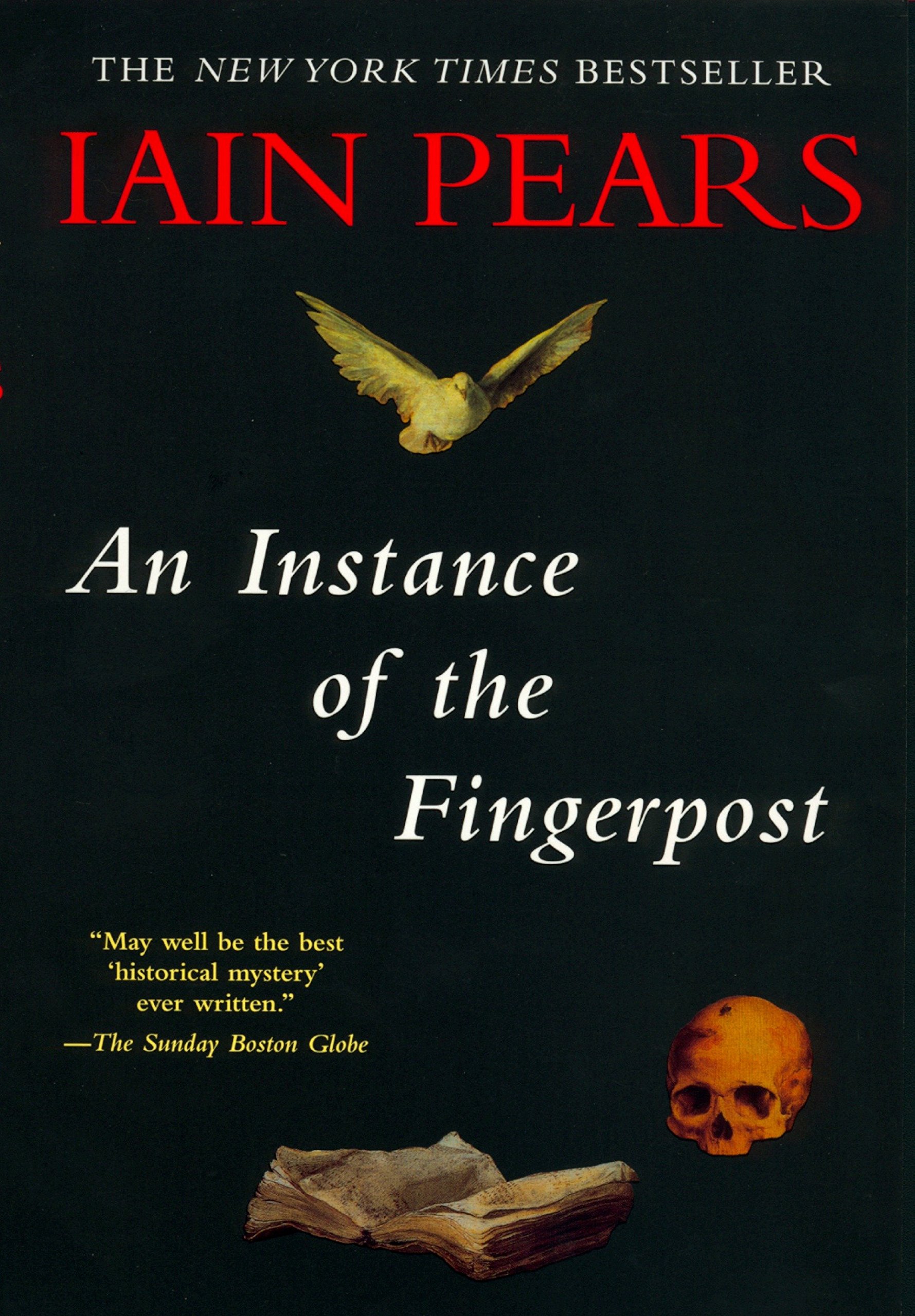I study English literature and read too much. Concise reviews of the ridiculous miscellany of my reading choices. Sometimes also things I watch and listen to. But mostly read.
Saturday, 8 December 2018
An Instance of the Fingerpost by Iain Pears
I decided to read this book because I read a review comparing it to The Name of the Rose, and I honestly have no idea why I even finished it. Iain Pears clearly knows his history, but I have grave doubts about his ability to write a balanced novel. There are just so many twists to the plot, that I couldn't keep track of them at all. It's a sort of Restoration-era murder mystery, told by four unreliable narrators, but they're unreliable to such a degree that disentangling their stories is almost impossible. The first part is the seemingly innocuous record of an Italian merchant's son travelling in England, and is so boring that I immediately forgot all the events in it that proved significant later. The other accounts involve endless conspiracy theories and political power grabs. One person thinks an assassination on the king or one of his ministers is being contemplated, the other believes he is uncovering evidence that was fabricated against his father, another thinks Charles II secretly converted to Catholicism, and if any of these are actually 'true' is impossible to say by the end. Maybe that's the point, but trying to understand what was going on and which of the endless array of characters was which gave me a headache. I didn't really like the way any of the characters were written either, they all turned into a disgusting, indistinguishable mess in my brain, except the mysterious Sarah Blundy, who may be a Quaker, a prophetess, or perhaps Christ. I did say this was confusing. I find reaching about political machinations extremely tiring, and this novel is full of them; half-implications in coversations, reading too much into what everyone says, Biblical allusions that act as a kind of code between various characters, actual code in secret letters. While someone like Dumas in The Three Musketeers can make this kind of thing incredibly exciting, this book just felt like the paranoid rambling of this lacklustre collection of characters. By the end, I really didn't care what the truth was, I just wanted the book to be over. I know that it's a clever book, with great historical insight and whatever, but honestly, I wish I had never picked it up. But I guess trying to use various scientific methods of the early modern era to attempt to solve a crime is pretty cool.
Subscribe to:
Post Comments (Atom)

No comments:
Post a Comment